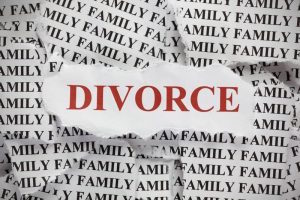
What is a Collaborative Divorce?
 Today we will explore the North Carolina approach to collaborative divorce. Established in 2003 via amendment to the North Carolina General Statutes, this legal process leverages alternative dispute resolution to help spouses complete the divorce process as quickly and efficiently as possible.
Today we will explore the North Carolina approach to collaborative divorce. Established in 2003 via amendment to the North Carolina General Statutes, this legal process leverages alternative dispute resolution to help spouses complete the divorce process as quickly and efficiently as possible.
How Does North Carolina Define Collaborative Divorce?
In Chapter 50, Article 4 of the North Carolina General Statutes, we can find the state-specific definition for collaborative divorce, which is referred to legally as collaborative law.
Under Article 4, collaborative law is a legal procedure that allows a husband and wife to resolve divorce and other marital disputes without involving the courts. Instead of going through lengthy court proceedings, the spouses work together to find a mutually acceptable solution to their problems.
Throughout this process, the spouses will have to account for the standard issues in any divorce. They will have to agree upon the proper division of their property, distributing ownership as they see fit. If the spouses have children together, they will work together to determine the custody arrangements. In certain cases, they will also agree upon the presence and amount of child support, alimony and other support payments.
What are the Requirements for Collaborative Divorce?
As outlined in Article 4, the husband and wife must agree in writing as to the parameters of their collaborative divorce. To be effective, the husband, wife and their lawyers must all sign the writing. The written agreement must outline all relevant understandings concerning the collaborative divorce, such as property division, child custody and support payments.
There is an additional detail to account for with collaborative divorce agreements. If the spouses are unable to reach an agreement through the collaborative divorce process, the attorneys must withdraw from the case. Those same attorneys are not allowed to represent the spouses in future divorce proceedings.
Are Collaborative Divorce Proceedings Confidential?
Article 4 provides that collaborative divorce proceedings are confidential and privileged. This means that all statements, communications and work product related to the collaborative divorce would be inadmissible in future divorce proceedings. This applies to statements, communications and work product from the spouses, attorneys and third-party experts.
Do You Have Questions for a Skilled Family Law Attorney?
Whether you are dealing with collaborative divorce or other aspects of family law, it is vital to tread carefully. Fortunately, an experienced family law attorney can analyze your situation and help you work toward a positive outcome. Located in Charlotte, North Carolina, Powers Landreth PLLC is prepared to assist you with your family law case. Don’t hesitate to reach out to us today for professional assistance.
Resource:
ncleg.net/EnactedLegislation/Statutes/HTML/ByArticle/Chapter_50/Article_4.html
Learn More
Is an Annulment Right for You?
 If you follow pop culture at all, you will recall that a little more than ten years ago now, actress Renée Zellweger and country singer Kenny Chesney were briefly married. The marriage lasted only a matter of months. However, a divorce was not the legal action that they took to end their marriage—it was an annulment. Annulments are not as common as divorces because they are only allowed in certain circumstances, but it is worthwhile to discuss what they are in case they apply to a situation relevant to you.
If you follow pop culture at all, you will recall that a little more than ten years ago now, actress Renée Zellweger and country singer Kenny Chesney were briefly married. The marriage lasted only a matter of months. However, a divorce was not the legal action that they took to end their marriage—it was an annulment. Annulments are not as common as divorces because they are only allowed in certain circumstances, but it is worthwhile to discuss what they are in case they apply to a situation relevant to you.
Annulment Defined
While a divorce ends a marriage of two people who no longer want the marriage, an annulment essentially treats the marriage as though it never existed. In North Carolina, two people can request that a court annul their marriage if they can show that it is an invalid marriage. The technical terms that the state and the courts use are “void” and “voidable.” If a marriage falls into either of those categories, then a court can annul it. Most of the situations below are voidable marriages, as opposed to void marriages. The only void one is essentially that of a bigamous situation. Such a marriage is invalid from the beginning, but it is still best to request an official annulment.
Examples of Annulment-Worthy Marriages
North Carolina lists a few different situations in which the courts will grant an annulment to a married couple.
Family Members
If the marriage is an incestual one, then that marriage qualifies for an annulment, per North Carolina law. Specifically, the two parties must be closer than first cousins.
Age
If one of the parties is under the age of sixteen and there was no prior court order allowing the marriage, then it may qualify for an annulment. However, the situation is trickier if a child is involved. If the girl or woman is pregnant or has already had a child with the other party, then the courts will not annul such a marriage. The only exception is if the child unfortunately died, either at birth or afterwards.
Capability
If one of the parties is physically impotent, then that is a ground for annulment. Along a similar vein, if one of the parties was mentally incapable of entering into the marriage and understanding what it entailed, then the courts may grant an annulment.
Deception
If a man marries a woman under the impression that she is pregnant with his child and it then turns out that she actually was not, then he may have grounds for an annulment.
Seek Help
This was simply a very brief overview of situations that can lead to an annulment, as opposed to a divorce. If you think that your situation may fall into one of the categories that we mentioned, then reach out to us. We will be able to help you fully analyze your circumstances and compare them to the different fact scenarios that have gone before the courts of North Carolina to determine the best steps forward. Call the experienced family law attorneys at Powers Landreth PLLC today.
Resource:
ncleg.net/EnactedLegislation/Statutes/HTML/BySection/Chapter_51/GS_51-3.html
Learn More
False Allegations Made During Divorce
 Stress, pressure, and fear will make ordinary people do unordinary things–manipulative and even deceitful things. Some divorcing spouses go so far as to make up stories about their partners that damage their reputation and chances to be granted child custody, marital property, or alimony. If you are facing such accusations, you need to act now by contacting an experienced Charlotte, North Carolina divorce attorney.
Stress, pressure, and fear will make ordinary people do unordinary things–manipulative and even deceitful things. Some divorcing spouses go so far as to make up stories about their partners that damage their reputation and chances to be granted child custody, marital property, or alimony. If you are facing such accusations, you need to act now by contacting an experienced Charlotte, North Carolina divorce attorney.
False Allegations of Domestic Violence are Rare, But Do Occur During Divorce
While false domestic violence or abuse allegations are rare, they do affect spouses negatively during divorce. Specifically, a protective order (50-B) against one of the spouses could seriously impact the decision of the judge in many circumstances. According to research and reported by the Colorado Coalition Against Domestic Violence, in 63 percent to 74 percent of domestic violence cases, there is sufficient evidence that abuse occurred. In the remaining cases, there is insufficient evidence or a mistaken belief that abuse occurred. Very rarely does a person make a false allegation, which makes it all that much more difficult to prove in court.
Accusations of Drug or Alcohol Addiction, Sexual Abuse, or Child Abuse and Neglect Can Destroy a Parent’s Chances of Custody
Allegations of child sexual abuse during divorce cases only make up about six percent of cases, though at least two thirds of those cases are substantiated by evidence. Other allegations that could seriously jeopardize your ability to receive child custody, or even visitation rights, include:
- Alcohol or drug use;
- Child abuse;
- Spousal abuse;
- Animal cruelty;
- Committing crimes without getting caught; and
- Exposing the child to inappropriate activities or material.
Gambling, Criminal Allegations Affect Asset Division and Alimony
Even though North Carolina is an equitable distribution state, as per § 50-20, meaning that marital property is divided “fairly,” though not necessarily evenly, an accusation of abuse, an addiction, committing a crime that lead to a criminal record, or other offenses could mean that you are not awarded your fair share of the marital property. Because North Carolina can is a no-fault state for divorce, meaning that the court does not “care” in many instances who caused the divorce and will go ahead with equitable distribution of assets, there are some scenarios where allegations could disrupt this. For example, if one spouse spent a lot of money gambling, on another sexual partner, or somehow deprived the family of income in some other unfaithful, deceitful, or dishonest manner, such as committing a crime, the court may side with the other spouse that cast doubt on the other. The court may not divide the assets or allocate alimony in the same manner as it would had no false allegations been made.
Contact Powers Landreth PLLC Today for Experienced Charlotte Divorce Legal Counsel
The Charlotte attorneys at Powers Landreth PLLC will help you clear your name from any false accusations and ensure that you are given a fair chance at child custody, visitation, spousal support, and asset division. Contact us today for assistance; our attorneys are happy to answer any questions you may have.
Resources:
ccadv.org/wp-content/uploads/2013/11/CCADV-CCASA-Fact-Sheet-on-Myth-of-False-Allegations_updated-2.21.14.pdf
ncleg.net/EnactedLegislation/Statutes/HTML/BySection/Chapter_50/GS_50-20.html
Learn More
North Carolina Collaborative Divorce
 When most people think of divorce, a complicated, stressful, and costly image comes to mind. While many divorces do end up going down that type of road, especially when the divorce is contested and goes to court, there is an easier option available for couples whose relationship is still strong enough to discuss options face to face in a controlled, neutral environment. This option is called collaborative divorce, and it may be the right choice for you.
When most people think of divorce, a complicated, stressful, and costly image comes to mind. While many divorces do end up going down that type of road, especially when the divorce is contested and goes to court, there is an easier option available for couples whose relationship is still strong enough to discuss options face to face in a controlled, neutral environment. This option is called collaborative divorce, and it may be the right choice for you.
What is Collaborative Divorce?
To settle legal disputes, there are generally three accepted methods. The most recognizable option for many people is going to court (litigation) where a judge will make the decision for you after hearing the arguments of both sides. However, an article in Forbes estimates that 95 percent of divorces are settled outside of court. So how are people going about this? Arbitration, which is somewhat similar to litigation, is another option, which involves both parties entering an agreement to let an arbitrator settle the dispute for them. Both parties present their arguments to the arbitrator and the arbitrator will either make a concrete decision or the decision will be allowed to be appealed. Collaborative divorce is similar to arbitration in that it takes place outside of the courtroom, but neither party is forced into making a decision right then and there, and no third party will make the decision for them either. During a collaborative divorce, both parties come to a single room, or separate rooms, and present their sides to the collaborative divorce attorney. The collaborative divorce attorney takes no sides and has nothing to gain or lose by pressuring either party into a decision.
Why Should I Consider Collaborative Divorce?
There are many good reasons for going with a collaborative divorce over litigation. However, it should be kept in mind that in order for collaborative divorce to work, the communicative relationship between both parties must still be somewhat intact and the wishes that both parties have entering the process should already meet somewhere in the middle.
- Cost: The average collaborative divorce cost $19,723 which is less expensive than a traditional litigated divorce, which comes in at an average of $77,746.
- You control the outcome: The collaborative divorce attorney will help both parties come to an understanding and reach a middle ground in terms of asset and property division, child custody, alimony, and other issues. If a decision is made, legal contracts can be signed there or at a later date to enforce the decisions made equally by both parties. You are in control and can agree to or deny any offers presented by the other side.
Contact an Attorney Today
Whether you decide to go with litigation, arbitration, or collaborative divorce, you will need an experienced attorney at your side throughout. Call the Charlotte law office of Powers Landreth PLLC today.
Resources:
forbes.com/sites/jefflanders/2014/05/22/divorcing-women-is-it-best-to-litigate-or-settle/#3097c9e4618c
nbcnews.com/id/22315262/print/1/displaymode/1098/
Learn More